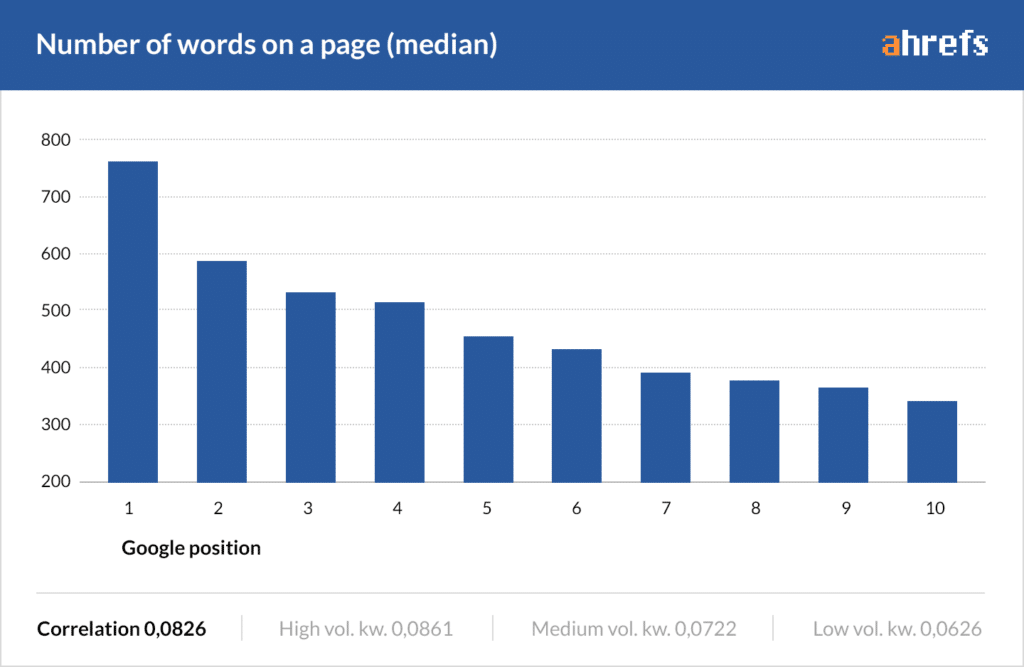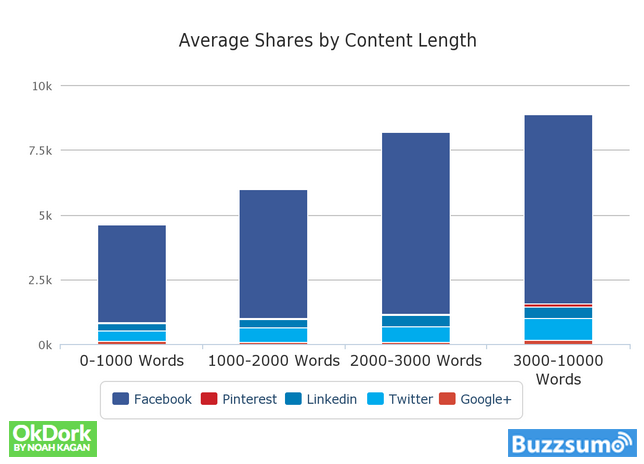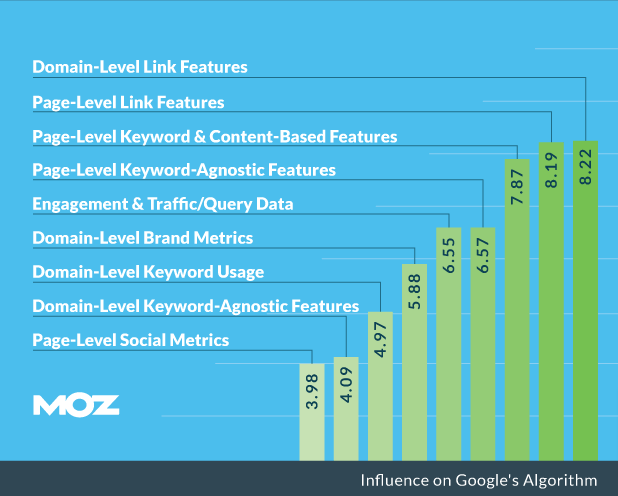As the digital landscape continues to evolve, so do the factors influencing search engine rankings and user experience.
Both word count for SEO and content quality have proven to be significant features with the capacity to resonate with audiences and search engines alike.
You may wonder: In a word count for SEO vs. content quality contest, which is superior for impacting SEO rankings and conversion rates?

In this pursuit, we embark on a journey to demystify the intricate relationship between word count and content quality, helping you unveil the elusive key to online success.
What is Word Count for SEO?
The word count for SEO refers to the number of words in a piece of content optimized for search engine visibility and rankings in a blog post, article, or product description.
In the past, longer-form material was often preferred for SEO since it offered more opportunities to incorporate pertinent keywords and address a specific subject fully.
The Significance of Word Count in SEO
Backlinko conducted a study analyzing 11 million search results, and their findings indicated that longer content tends to rank higher in search results.
Although word count alone doesn’t directly affect rankings, it is an integral part in many crucial SEO factors that we can’t afford to ignore.
Here is a compilation of the significance of word count in SEO:
1. Keyword Optimization: Longer articles provide more options to organically include pertinent keywords and related phrases, which may increase the page’s keyword density and perhaps enhance its ranks for the desired terms.
2. Comprehensive Coverage: By creating in-depth, longer-form material, we may further explore a subject and provide our visitors with helpful information. This raises the page’s perceived value and improves the likelihood that trustworthy websites would connect to it.
3. Semantic SEO: Longer content naturally supports various versions of our target keywords, which is advantageous for semantic SEO. By doing this, we make it easier for search engines to comprehend the context and relevance of our information.
4. Shareability: Longer, well-researched articles are more shareable, which raises the possibility of receiving attention on social media and getting beneficial backlinks.
5. Opportunities for Internal Linking: Longer articles provide us more chances for internal linking, which helps us create a strong content hierarchy and enhance site navigation, both of which are essential components of higher SEO.
Benefits and Drawbacks of High Word Count
Word count plays a crucial role in content creation and SEO strategy, presenting pros and cons that every content creator and SEO strategist should know.
Let’s delve into the advantages and disadvantages of having a high word count in content.
Benefits:
1. Comprehensive Coverage: With more words, content creators can provide a comprehensive and detailed discussion, touching on various aspects and nuances of the subject. This showcases the author’s expertise and enhances the overall credibility of the content.
2. Backlinks: Buzsumo, on analyzing over 100 million articles, found that longer pieces tend to attract more backlinks and social media shares, suggesting that comprehensive content may perform better in content promotion.

Drawbacks:
1. Time-Consuming: Creating content with a high word count can be time-consuming for both writers and editors. This becomes challenging, especially when there’s a need for frequent content publication.
2. Quality Concerns: While quantity is essential, it should never come at the expense of quality. Longer pieces that lack substance or are filled with unnecessary fluff can tarnish the author’s or brand’s reputation, driving away readers.
3. Editing Challenges: With extensive content, the editing and proofreading process becomes more laborious and prone to oversight. As a result, errors might slip through the cracks, impacting the overall professionalism of the content.
What Constitutes Quality Content?
Quality content is valuable, relevant, and engaging content designed to meet the needs and interests of the target audience.
Several key elements contribute to the makeup of quality content:
1. Relevance: Quality content is highly relevant to the intended audience. It addresses their specific questions, problems, or interests, aligning with their search intent.
2. Accuracy and Credibility: The content must be factually accurate and supported by reliable sources. Providing trustworthy information builds trust with the audience.
3. Uniqueness: Quality content offers a fresh perspective or original insights. It avoids merely repeating existing material and adds something new to the conversation.
4. Clear and Coherent: Well-structured content is easy to read and understand. It presents information in a logical sequence, with clear headings and organized paragraphs.
Why Quality Content is Important for SEO
A study done by Moz highlights that content quality and relevance are among the critical factors that impact search engine rankings.

Here are reasons why having high-quality content is so important for SEO:
1. Higher Search Rankings: High-quality content that satisfies user intent is more likely to rank higher in search results, increasing organic traffic to your website.
2. Increased User Engagement: Users are more likely to stay on your website for longer periods when you have quality content. This encouraging user activity informs search engines that your material is essential and relevant.
3. Citations and Backlinks: High-quality content increases the likelihood of gaining natural backlinks by becoming more shareable and reference-worthy.
Benefits of High-Quality Content
There are several advantages to producing high-quality content for companies and content providers alike.
Let’s look at some of the main benefits of creating and consuming excellent content:
1. Increased Organic Visitors: Carefully crafted and valuable content will consistently rank higher in search engine results, bringing in more natural visitors to websites and other online venues.
2. Better Search Engine Ranks Search engines like rewarding well-written material with higher ranks, making it easier for visitors to find and access.
3. Increases Brand Credibility: Regularly distributing top-notch content may significantly improve a brand’s standing and credibility among its target audience.
4. Encourages Audience Loyalty: When audiences discover genuine value in the material, they inevitably return for more and develop into devoted followers.
Word Count For SEO vs Content Quality
In a duel of word count for SEO vs content quality, as much as they are both significant elements for achieving SEO, they both bring in different benefits to an article.
Comparison Between the Importance of Word Count and Content Quality
Word count for SEO vs. content quality is two critical aspects that play distinct but interconnected roles in the success of online content.
Word count is significant primarily from an SEO perspective. Longer content tends to offer more opportunities for incorporating relevant keywords, improving search engine rankings.
Additionally, it may cover a topic more comprehensively, increasing the chances of satisfying user intent.
However, content quality holds immense importance for user experience and audience engagement.
High-quality content keeps users interested, reduces bounce rates, and encourages sharing on social media.
Also, valuable and engaging content establishes the author’s authority, builds credibility, and fosters audience loyalty.
How They Both Affect SEO Differently
Both word count for SEO vs. content quality play distinct roles in influencing SEO, contributing significantly to a webpage’s search engine visibility and overall performance.
When we have longer articles and adequately optimize them with relevant keywords, they stand a better chance of ranking well in search results.
Longer content allows us to delve into topics more deeply, satisfying user questions and even increasing the likelihood of gaining valuable backlinks.
On the other hand, content quality holds immense sway over user experience and engagement.
High-quality content that offers genuine value, relevance, and unique insights keeps visitors glued to the page, reducing bounce rates and encouraging social sharing.
Search engines are increasingly prioritizing user satisfaction, and it’s through top-notch content that we can align ourselves with this goal.
Balancing Word Count For SEO and Content Quality
When comparing word count for SEO vs. content quality, it is important to note that striking a balance between the number of words and quality is crucial to successful SEO.
While longer articles can provide more opportunities for SEO optimization, it’s essential to ensure that content remains valuable, engaging, and relevant to the target audience.
Strategies to Maintain a Balance Between Word Count and Content Quality
Here are practical strategies you can use to strike the perfect balance between word count for SEO vs. content quality to help meet the expectations of your audience and SEO:
1. Have Clear Objectives: The first step is to define the goals and objectives of your content. Get to know your target audience and understand their needs and intentions, so you can align your content with what they’re looking for.
2. Do Thorough Research: Don’t hold back on research. Dig deep into the topic to provide comprehensive and accurate content. Back up your points with trustworthy sources to establish credibility and build trust with your readers.
3. Plan a Logical Structure: When crafting your content, take the time to outline a clear and logical structure. Break it down with headings, subheadings, and bullet points to make it easy for readers to navigate and grasp the key attributes.
4. Be Concise and Relevant: Keep your content concise, focused, and packed with valuable information your audience will find helpful.
5. Polish with Proofreading and Editing: Go through your content meticulously, checking for errors, typos and refining the language to ensure a professional finish.
Tips and Best Practices
1. Understanding your audience is a crucial aspect of crafting compelling content. Take the time to know their preferences, needs, and pain points, so you can tailor your message to resonate with them.
2. When creating content, always aim to offer value and insights that genuinely address your audience’s questions and challenges. You’ll build trust and credibility with your readers by providing practical solutions and tackling their pain points head-on.
3. Skillfully incorporate relevant keywords into your writing, ensuring they flow naturally and not disrupt the overall reading experience. Leveraging SEO tools can help you identify those high-traffic keywords that will boost your rankings.
4. Encourage reader engagement by including compelling CTA) throughout your content. Prompt your audience to share their thoughts, comment on your work, or subscribe for more exciting updates.
Expert Opinions on Balancing These Two Factors
Expert opinions on balancing word count and content quality vary, but most agree that finding the proper equilibrium is crucial for successful content creation.
Here are some insights from experts in the field:
1. Rand Fishkin (Co-founder of Moz): “The key to balancing word count and content quality is to prioritize the user experience. Focus on creating in-depth, valuable content, and let the word count be a natural outcome of meeting user needs.”
2. Neil Patel (Digital Marketing Expert): “Content quality is paramount, but that doesn’t mean you should ignore word count. Longer content often outperforms shorter pieces in search rankings. However, always prioritize quality over quantity.”
3. Brian Dean (Founder of Backlinko): “The key is to aim for content that’s long enough to provide comprehensive value while ensuring it remains engaging and skimmable. Focus on content that satisfies user intent and makes an impact.”
Final Thoughts on the Importance of Both Word Count and Content Quality in SEO
Both word count and content quality play critical roles in search engine optimization success.
Therefore, they must be balanced to drive organic traffic and establish authority in the digital landscape.
Maintaining this equilibrium can elevate your SEO efforts and achieve long-term success in the ever-evolving digital landscape.
Take the time to review your content, analyze user engagement, and identify areas for improvement.
You can hire us at Flying V Group to help you create a winning content strategy. With a team of experienced SEO experts, we’ll deliver high-quality content that will impact revenue.






0 Comments